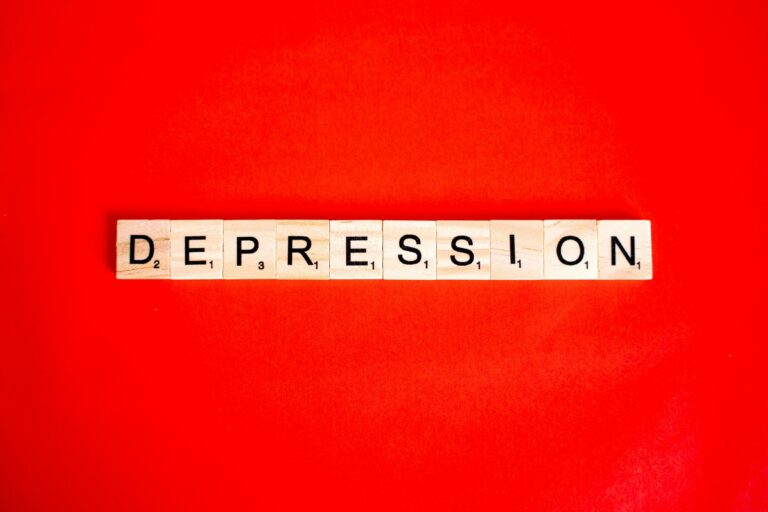What Vitamin Helps You To Sleep?

Embarking on a journey toward better sleep can often feel like navigating through a maze, but what if the key to unlocking the door to restful nights and rejuvenated mornings might be as simple as knowing what vitamin aids your slumber? Exploring the realm of sleep, Vector Sleep Clinic sheds light on the pressing problem of sleep disorders, such as insomnia and sleep apnea, that are not just mere inconveniences but can escalate into serious health risks if left unchecked. With a trustworthy and reliable approach, the clinic emphasizes the importance of understanding these sleep disturbances and offers a comprehensive solution to secure the uninterrupted sleep you’ve been dreaming of. So, if the puzzle of peaceful sleep has been eluding you, discovering what vitamin can be your ally in this quest might just be the breakthrough you need.
Understanding Sleep and Its Importance
Sleep is a fundamental aspect of your life, essential for rejuvenation, health, and overall well-being. Let’s dive into what makes sleep so crucial.
The science of sleep: Stages and cycles
The science of sleep is fascinating. It cycles through several stages, including REM (rapid eye movement) and several stages of non-REM sleep, each contributing to body repair, brain health, and energy restoration. Understanding these stages helps appreciate why a good night’s sleep is vital for your health.
Consequences of inadequate sleep
Lack of sleep can lead to several health issues, including reduced concentration, weakened immune system, increased risk of heart disease, and mental health challenges. It’s clear, then, that ensuring you get enough rest is not just about feeling rested—it’s about keeping your body and mind in good shape.
The role of diet and nutrients in sleep quality
Your diet plays a significant role in how well you sleep. Certain nutrients are known to aid in relaxation and promote better sleep cycles. Understanding these can help you tailor your diet for a good night’s rest.
The Vitamin Connection: Nutrients That Aid Sleep
Now, let’s explore the specific vitamins and minerals that are linked to improved sleep quality.
Overview of vitamins and minerals for sleep
Several vitamins and minerals have been shown to enhance sleep quality, including Vitamin D, magnesium, Vitamin B6, Vitamin E, and calcium. These nutrients play various roles in supporting sleep, from regulating sleep cycles to promoting relaxation.
The interplay between vitamins and sleep mechanisms
Vitamins and minerals can affect the body’s sleep mechanisms in different ways. For example, magnesium helps to relax muscles and calm the nervous system, preparing the body for sleep, while Vitamin B6 influences the production of serotonin, which is then converted to melatonin, the hormone directly responsible for sleep cycles.
Differences between vitamins and sleep medications
While sleep medications can be effective for short-term sleep issues, they often do not address underlying problems and can lead to dependency. Vitamins and minerals, on the other hand, support the body’s natural sleep processes without the same risks associated with medications.
Vitamin D: The Sunshine Vitamin
Vitamin D plays a unique role in sleep quality.
How Vitamin D affects sleep
Research indicates that adequate levels of Vitamin D are related to improved sleep quality and reduced sleep disturbances. It’s believed that Vitamin D may affect sleep regulation and promote sleep duration.
Research findings on Vitamin D and sleep quality
Studies have found that Vitamin D deficiency is linked to shorter sleep duration and more sleep disturbances. Ensuring you get enough Vitamin D could help improve your sleep.
Sources of Vitamin D and recommended daily intake
Sun exposure is the most natural way to get Vitamin D. However, for many, getting enough sun is not always possible. Foods like fatty fish, egg yolks, and fortified foods, as well as supplements, can help achieve the recommended daily intake.
Magnesium: The Relaxation Mineral
Magnesium has a calming effect on the body’s nervous system, making it a vital mineral for sleep.
Magnesium’s role in sleep regulation
Magnesium helps to regulate neurotransmitters that are involved in sleep. It’s also crucial for the body’s production of melatonin, playing a significant role in sleep regulation.
Studies on magnesium’s effectiveness for sleep
Research supports the use of magnesium supplements to improve sleep quality, especially in people with insomnia. Magnesium’s ability to relax the muscles and calm the nervous system can lead to a more restful night’s sleep.
How to incorporate magnesium into your diet
Green leafy vegetables, nuts, seeds, and whole grains are excellent sources of magnesium. Ensuring these foods are part of your diet can help boost your magnesium intake.
Vitamin B6: The Dream Promoter
Vitamin B6 has been linked to vivid dreams and improved sleep quality.
The importance of Vitamin B6 in sleep and dream recall
This vitamin is essential for serotonin production, which is then converted to melatonin. It may also aid in dream recall, making it an interesting nutrient for those exploring their dream worlds.
Scientific insights into Vitamin B6 and its impact on sleep cycles
Studies have shown that Vitamin B6 supplementation can improve sleep quality and increase dream vividness and recall. This might be due to its role in melatonin production.
Natural sources of Vitamin B6
Fish, beef liver, potatoes, and starchy vegetables are rich sources of Vitamin B6. Incorporating these foods into your diet could support better sleep.
Vitamin E: The Antioxidant for Restful Sleep
Vitamin E’s antioxidant properties may play a role in improving sleep quality.
Exploring the link between Vitamin E and sleep quality
Vitamin E protects cells from oxidative stress, which can negatively impact sleep. By reducing oxidative stress, Vitamin E may help improve sleep quality.
The benefits of Vitamin E for sleep disorders
Some studies suggest that Vitamin E supplementation could benefit those with sleep disorders, though more research is needed to fully understand this connection.
Food sources rich in Vitamin E
Nuts, seeds, and green leafy vegetables are excellent sources of Vitamin E. Including these in your diet can help ensure you’re getting enough of this important vitamin.
Calcium: More Than Just Bone Health
Calcium’s role in sleep is less well-known but no less important.
Calcium’s involvement in sleep time and efficiency
Calcium helps the brain use the amino acid tryptophan to manufacture melatonin, directly impacting sleep cycles and efficiency.
How calcium levels affect REM sleep
Proper calcium levels can influence the quality of REM sleep, a critical stage for mental restoration.
Calcium-rich foods for better sleep
Dairy products, almonds, kale, and broccoli are rich in calcium and can help improve your sleep when included in your diet.
The Role of Melatonin in Sleep Regulation
Melatonin is directly related to sleep but is a hormone, not a vitamin.
Understanding melatonin as a sleep hormone, not a vitamin
Melatonin regulates your sleep-wake cycle. Levels of melatonin increase in the evening to promote sleep and decrease in the morning to help you wake up.
How to naturally boost melatonin production
Exposure to natural daylight, reducing blue light exposure in the evening, and maintaining a regular sleep schedule can all help boost your body’s production of melatonin.
The impact of supplemental melatonin on sleep patterns
While supplemental melatonin can be effective for some, it’s always best to consult with a healthcare provider before starting any new supplement, especially for long-term use.
Incorporating Sleep-Supporting Vitamins into Your Diet
Dietary changes for improved sleep
To improve your sleep through diet, focus on incorporating foods rich in the vitamins and minerals discussed. A balanced diet can support healthy sleep cycles and overall sleep quality.
Balancing your diet for optimal vitamin intake
Ensure your diet is diverse and includes a variety of foods to get all the nutrients that support good sleep. Paying attention to how these foods impact your sleep can help you make informed decisions about your diet.
When to consider supplements
If you’re unable to get enough of these nutrients through your diet alone, supplements may be an option. It’s important to discuss this with a healthcare professional first.
When to Seek Professional Help
Signs that vitamins and lifestyle changes aren’t enough
If you’ve made changes to your diet and lifestyle but still struggle with sleep, it might be time to seek professional help. Persistent problems with falling asleep, staying asleep, or daytime sleepiness warrant a closer look.
How sleep studies can uncover underlying issues
A sleep study can provide insights into what’s disrupting your sleep. It can identify issues such as sleep apnea or restless leg syndrome, which can then be treated accordingly.
Vector Sleep Clinic: A resource for comprehensive sleep care
Vector Sleep Clinic offers a path to uninterrupted sleep. With a comprehensive approach to diagnosing and treating sleep disorders, you can find the help you need to achieve restful nights. Trustworthy, reliable, and licensed care ensures that you can unlock the magic of restful nights and rejuvenating sleep.






